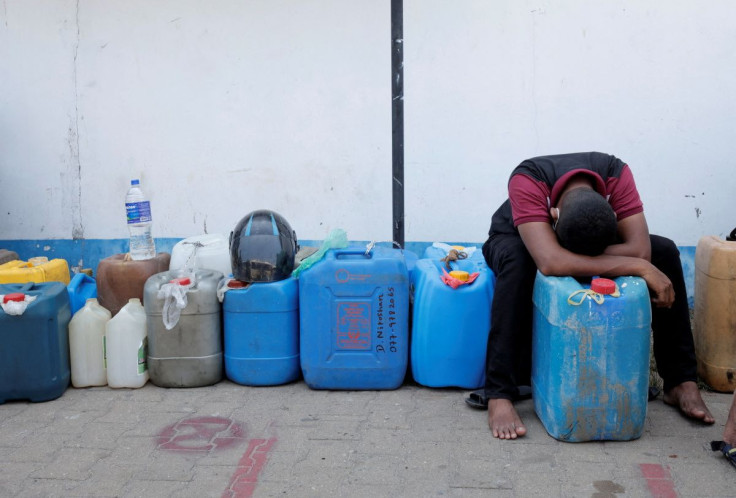China Blames The US-led Sanctions Against Russia For Sri Lanka's Crisis, Has Good Advice For India
China rarely misses the opportunity to blame America for whatever goes wrong in countries and regions it is trying to bring under its sphere of influence, like Sri Lanka's crisis. And always have good advice for India.
Last week, a Global Times editorial blamed the U.S.-led sanctions against Russia for rising food and energy prices, which have helped push the island nation's economy off the cliff. "The Russia-Ukraine conflict and the US-led economic sanctions against Russia may have further aggravated Sri Lanka's economic plight," said the editorial. "The skyrocketing prices of consumer goods and shortages of food and fuel have driven the economy to the brink of collapse."
Higher food and energy prices have devastated consumers worldwide, especially those living in developing nations that rely on imports for their food and energy needs, like Sri Lanka. Thus, Beijing may have a point, the economies of developing countries are collateral damage of the Russian-Ukraine war and the Western economic sanctions.
"The deteriorating economic crisis in the South Asian nation is a typical example of how emerging economies, especially those small and vulnerable ones, are suffering from the shocks from the reckless Western economic sanctions," the editorial continues. "While the West claimed their sanctions are against Russia, they are seriously harming the interests of developing economies and may even cause a widespread humanitarian crisis."
The trouble is that the editorial doesn't mention the role the Covid-19 crisis played in the collapse of the nation's tourist receipts remittances, two significant sources of foreign currency for the island nation's economy. Meanwhile, the editorial downplayed the impact of Beijing's "debt-trap diplomacy" in bringing Sri Lanka's economy into a dire situation long before the Russia-Ukraine war broke off and the U.S.-led sanctions went into effect.
"Some may argue that the Russia-Ukraine conflict was not the main cause for Sri Lanka's debt problem, but given its economic vulnerability, such a harsh external economic environment has undoubtedly accelerated the severity of its debt crisis," the editorial continues.
China's debt-trap diplomacy began in 2007 when Beijing provided President Mahinda Rajapaksa with military and diplomatic assistance to fight the Tamil Tigers. It soon advanced to ambitious construction projects, like the deep-sea Hambantota port project, the Colombo Port City complex, and the Mattala Rajapaksa International Airport (MRIA).
Undoubtedly, some of these projects are economically viable and critical to Sri Lanka's infrastructure as it tries to develop its economy. But others were neither critical nor viable. They serve the needs of Beijing rather than the needs of the local markets, like MRIA — the world's emptiest airport.
Meanwhile, some may argue that the construction costs were inflated because these projects were built mainly by Chinese construction companies and financed by China's state-owned banks rather than by private contractors and funded by private lenders under clear and transparent bidding.
That's how Sri Lanka ended up heavily indebted to Beijing, which has applied creative finance, swapping a chunk of the debt for 99-year leases to ease the pain of the country's indebtedness.
Still, that's a bad idea, as the swap of debt for leases deprives Sri Lanka of a valuable foreign currency cash flow. That's money needed to pay for food and energy imports when other sources of foreign currency like tourist receipts and remittances collapse, as has been the case in the aftermath of the pandemic.
Rather than recognizing this cruel reality and keeping quiet about it, Beijing criticizes India for attributing Sri Lanka's crisis to China's debt trap. "Some in India have used the debt issue to play up the "China debt trap" or "China threat theory," says the Global Times editorial. "This shortsighted approach is not only detrimental to India's interests but also undermines the much-needed cooperation in the region. Development in South Asia needs India as much as it needs China. Therefore, it is in the interests of all parties to strengthen cooperation to help Sri Lanka tackle the debt crisis."

© Copyright IBTimes 2024. All rights reserved.






















